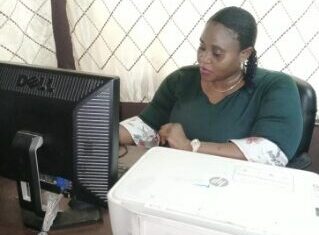
News
At the Intersection of Gender and Disability
Play audio version
Meet DJP Fellow Oluwabukolami Omolara Badmus
June 26, 2021
Oluwabukolami Omolara Badmus is a 33-year-old disability rights activist and feminist based in Lagos, Nigeria. She is both the financial secretary and Lagos state coordinator for the Lionheart Ability Leaders International Foundation (LALIF).
LALIF’s mission is to generally “educate, enlighten, and empower the people on issues related to persons with disabilities, women and children, among others.” Badmus is also an educator, teaching at a government/public high school.
Since 2019, part of LALIF’s major organizational focus has been on people with Usher syndrome, a condition that causes DeafBlindness. After realizing how little Nigerian citizens know about the syndrome and those who live with it, Badmus is now actively involved in educating people, from government officials to educators, about it.
Badmus was born in Ibadan in 1988. She grew up in Ondo State, but her native home is located in Osun State. She is part of a large family with nine other siblings. She had some familial support even though growing up as a person with a disability in her family came with challenges. “My mom has been a supportive pillar since I was, ever since I was born,” says Badmus.
Growing up in Nigeria wasn’t easy: “There is no proper infrastructure put in place for people living with disability.” In her opinion, the government isn’t making enough of an effort to be more socially inclusive of people with disabilities. “Though they say they’re trying their best, but to me, their best has not been enough,” she says. Badmus remains hopeful that conditions will improve.
During her senior year in high school in 2001, Abike Dabiri (a known journalist) visited her school and sparked her interest in journalism. She originally planned to study journalism at a university, but she was unable to due to financial constraints at the time. Badmus attended a teacher’s college in the meantime.
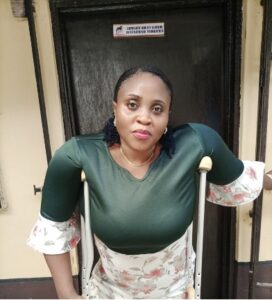
Her activism roots, on the other hand, stemmed from her later days at University of Ibadan, where she studied education and political science. She also helped form the “Special Persons Club,” an organization for students with disabilities. Badmus says, “My relationship with people, with other people living with disabilities has been … very very wonderful. Because, from … relating with them, I was able to know that, apart from the fact that … one word band[ed] us together, that this is the word ‘disability’ [brought] us together, we still have our individual differences.”
Her passion for disability rights activism has endured over time. She places a particular focus on women with disabilities in regard to her advocacy work. Women with disabilities in Nigeria face a myriad of “intersectional” hurdles. For example, “If you look at the percentage of the employment rate of people living with disability, the women are really really lacking behind,” says Badmus.
She is looking forward to honing her journalism skills and creating a documentary after her fellowship with the Disability Justice Project. She intends to share stories of people with DeafBlindness and women with disabilities – of both “their inclusion and exclusion.”
Her positive impact on others continues to motivate her work. “Passion. My passion, the love, the smiles I see on people’s faces, that is what has been inspiring me…”
News From the Global Frontlines of Disability Justice
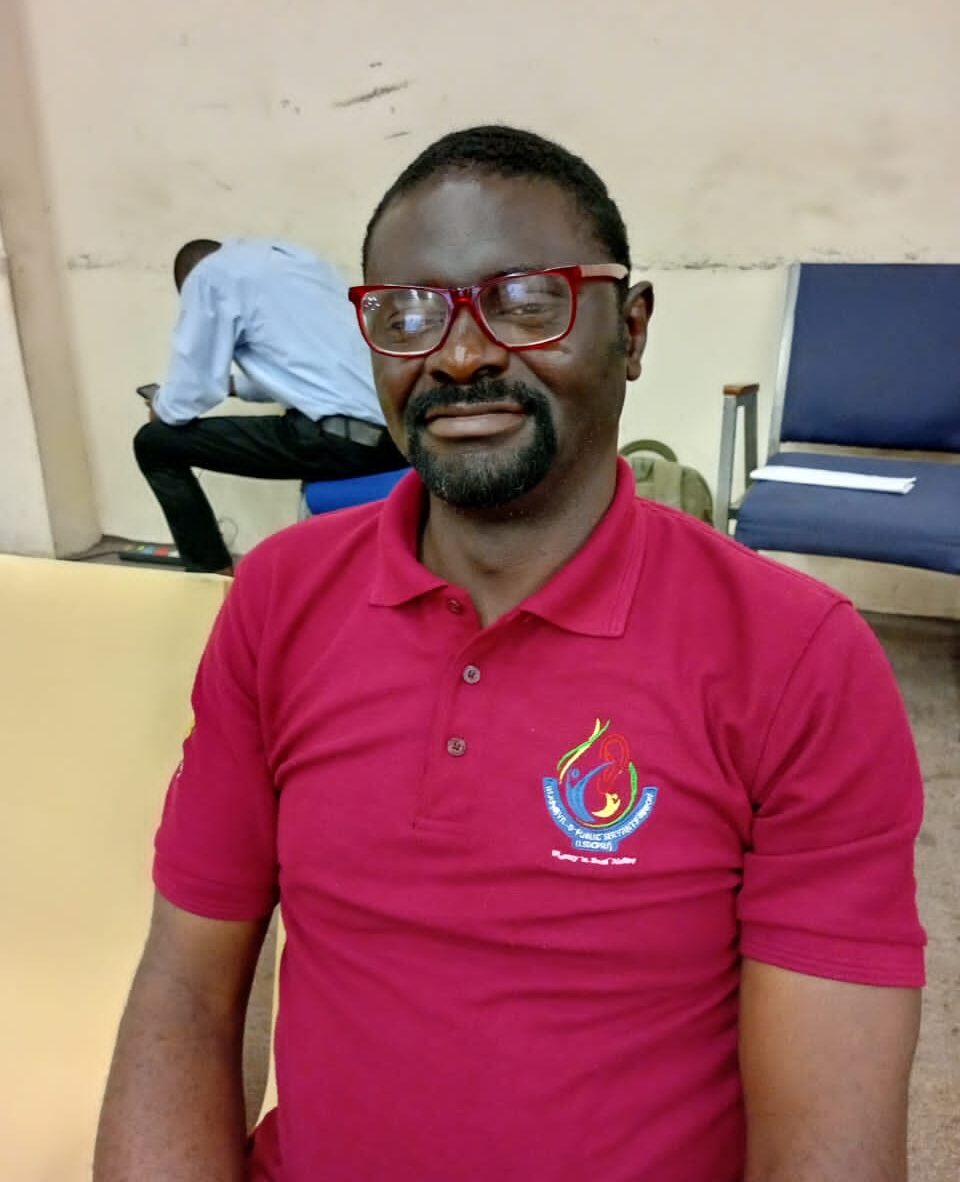
From Isolation to Advocacy
Nigeria’s DeafBlind community has long lacked recognition, but the launch of the Deaf-Blind Inclusive and Advocacy Network marks a turning point. Led by activist Solomon Okelola, the group seeks to address communication barriers and a lack of support. Among those affected is John Shodiya, who once thrived in the Deaf community but struggled with belonging after losing his sight.
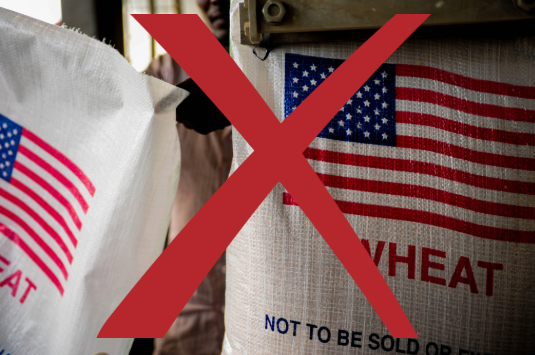
Disability Aid Disrupted
The Trump administration’s 90-day pause on USAID funding has had far-reaching consequences, particularly for disabled people and organizations worldwide, including members of the Disability Justice Project (DJP) community. Activists from Nigeria, the Democratic Republic of Congo, and Rwanda report severe disruptions, deepening challenges for marginalized communities, especially disabled people facing conflict, poverty, and structural discrimination.
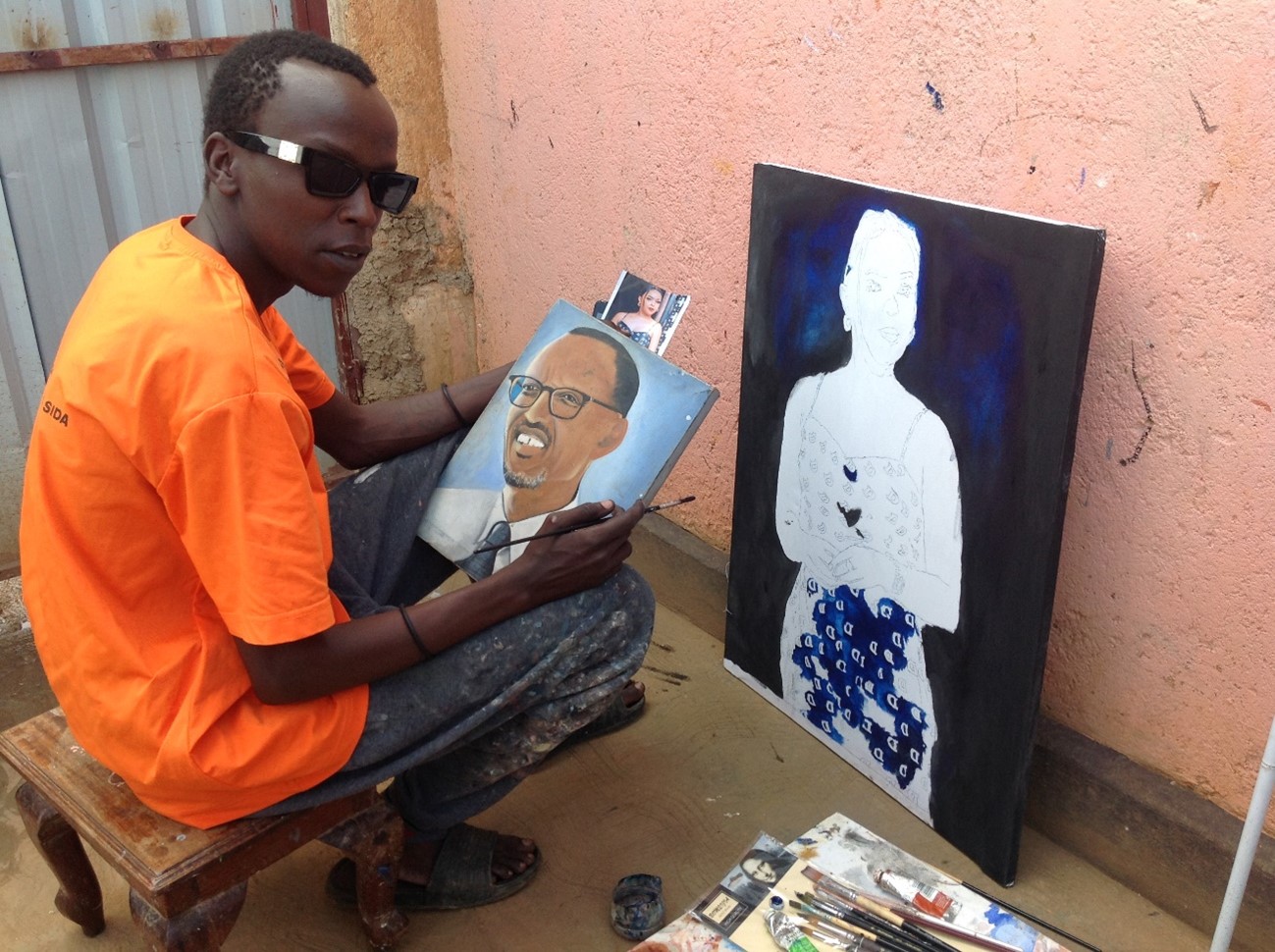
A Life’s Work
After losing his sight, artist Jean de Dieu Uwikunda found new ways to create, using a flashlight at night to outline objects and distinguishing colors by their scents. His story, along with that of DeafBlind sports coach Jean Marie Furaha, is rare in Rwanda. While over 446,000 Rwandans have disabilities, a 2019 study found that only 52 percent of working-age disabled adults were employed, compared to 71 percent of their non-disabled counterparts.
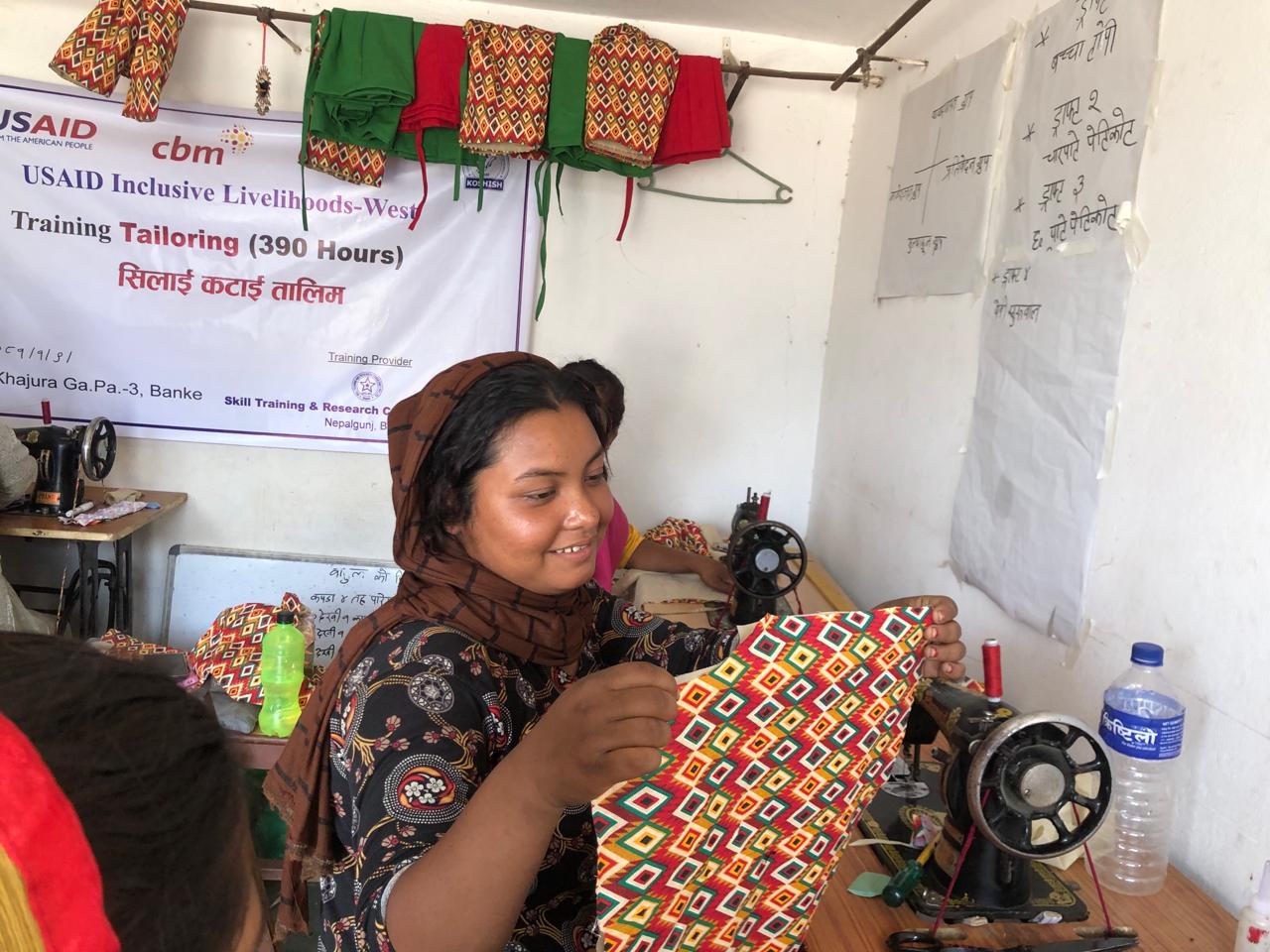
‘I Won’t Give Up My Rights Anymore’
After a life-altering accident, Lakshmi Lohar struggled with fear and stigma in her rural Nepalese community. In 2023, she found a lifeline through KOSHISH National Mental Health Self-Help Organization, which helped her develop social connections and access vocational training in tailoring. Today, Lakshmi is reclaiming her independence and shaping a future beyond the limitations once placed on her. “I won’t give up my rights anymore,” she says, “just like I learned in the meetings.”

Rwanda’s Marburg Crisis
As Rwanda confronts its first-ever Marburg virus outbreak, people with disabilities face heightened risks — not only from the virus but also from the lack of accessible health information. “Without proper accommodations, such as sign language interpreters, captions, Braille, or visual aids, the Deaf and DeafBlind community may miss crucial information about how to protect themselves, symptoms to watch for, or where to seek help in case of infection,” says Joseph Musabyimana, executive director of the Rwanda Organization of Persons with Deaf Blindness.
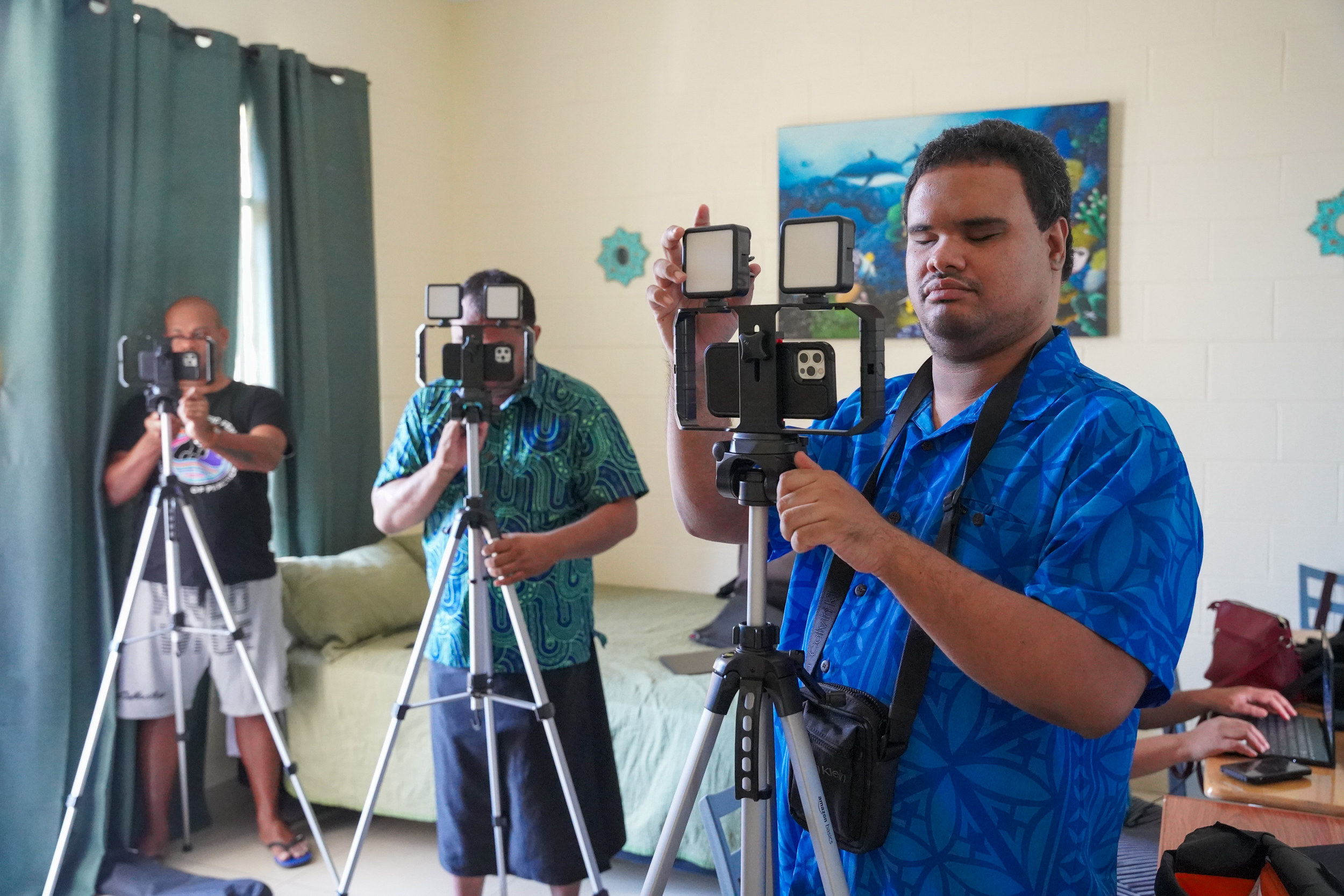
Capturing Vision Through Sound and Touch
Last year, the DJP trained Indigenous activists with disabilities from the Pacific on the iPhone camera to create a documentary series on disability and climate change. With VoiceOver, the iPhone provides image descriptions for blind and low-vision filmmakers and offers other accessible features. “If you think about it, it doesn’t make sense for a blind person to use a camera,” says DJP filmmaker Ari Hazelman. “The iPhone gives you more avenues to tell your story in a more profound way as a blind person.”